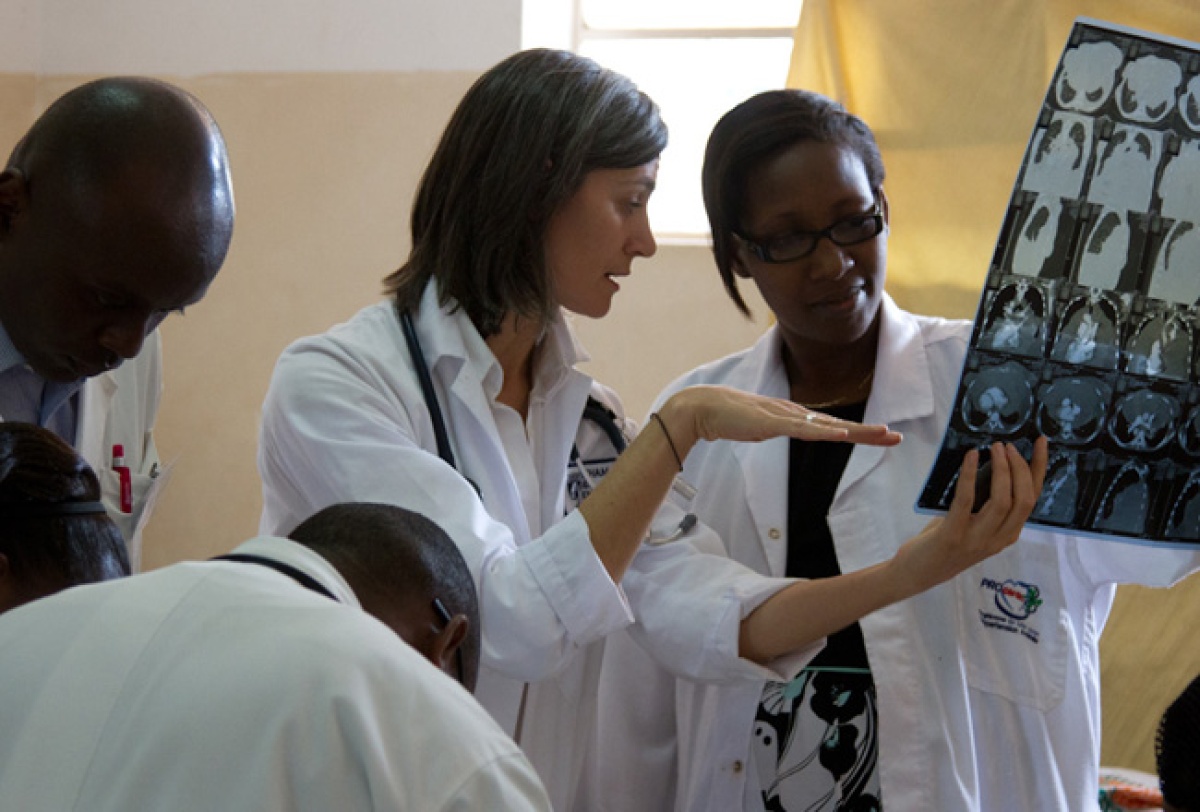Rwanda Launches Bold Medical Education Partnership
Posted on Nov 20, 2013

The World Health Organization recommends that a country have 2.3 health care professionals—physicians, nurses, and midwives—for every 1,000 residents. Rwanda falls far below this ideal with 0.84 physicians, nurses, and midwives per 1,000 residents.
An article published today in The New England Journal of Medicine—co-authored by Rwandan Minister of Health Dr. Agnes Binagwaho, U.S. Global AIDS Coordinator Dr. Eric Goosby, Dean of Medicine at the National University in Kigali Dr. Patrick Kyamanywa, and PIH’s Dr. Paul Farmer, among others—lays out the details of the Human Resources for Health Program, a clear and bold partnership to remedy this shortfall.
The Human Resources for Health Program represents the largest global health partnership forged between U.S. academic institutions and a low-resource country. The seven-year program will bring in hundreds of clinicians and educators from 25 American medical institutions, including Harvard Medical School, Brigham and Women’s Hospital, Duke University Medical School, and Yale School of Medicine. After seven years, the authors write, Rwanda will operate the residency and training programs within its own budget and with its own teachers and clinicians.
According to the article, more than 500 Rwandan physicians will be trained in specialty and subspeciality areas by 2018.
"The Human Resources for Health Program focuses on knowledge transfer, sustained collaboration, and the establishment of new medical residency, nursing specialty, health management, and oral health programs within the Rwandan education system,” the authors write, going on to note that the consortium will play an “integral role in strengthening global health curricula.”
The shortage of clinicians in low-resource countries is well delineated. It’s something that many of us have come to associate the term “brain drain” with. But the authors of the article caution that “one important consideration for the retention of health professionals that is often overlooked in discussions of “brain drain” is the persistent lack of basic equipment and supplies at facilities; physicians who benefit from improved training will not be retained if they cannot apply these skills to their clinical practice and to teaching future clinicians.”
Over the past decade, Rwanda has achieved some of the most impressive health gains in the world. With this fresh approach to academic collaboration, the country is poised to build on these gains far into the future.
Click here to read the full New England Journal of Medicine article.

